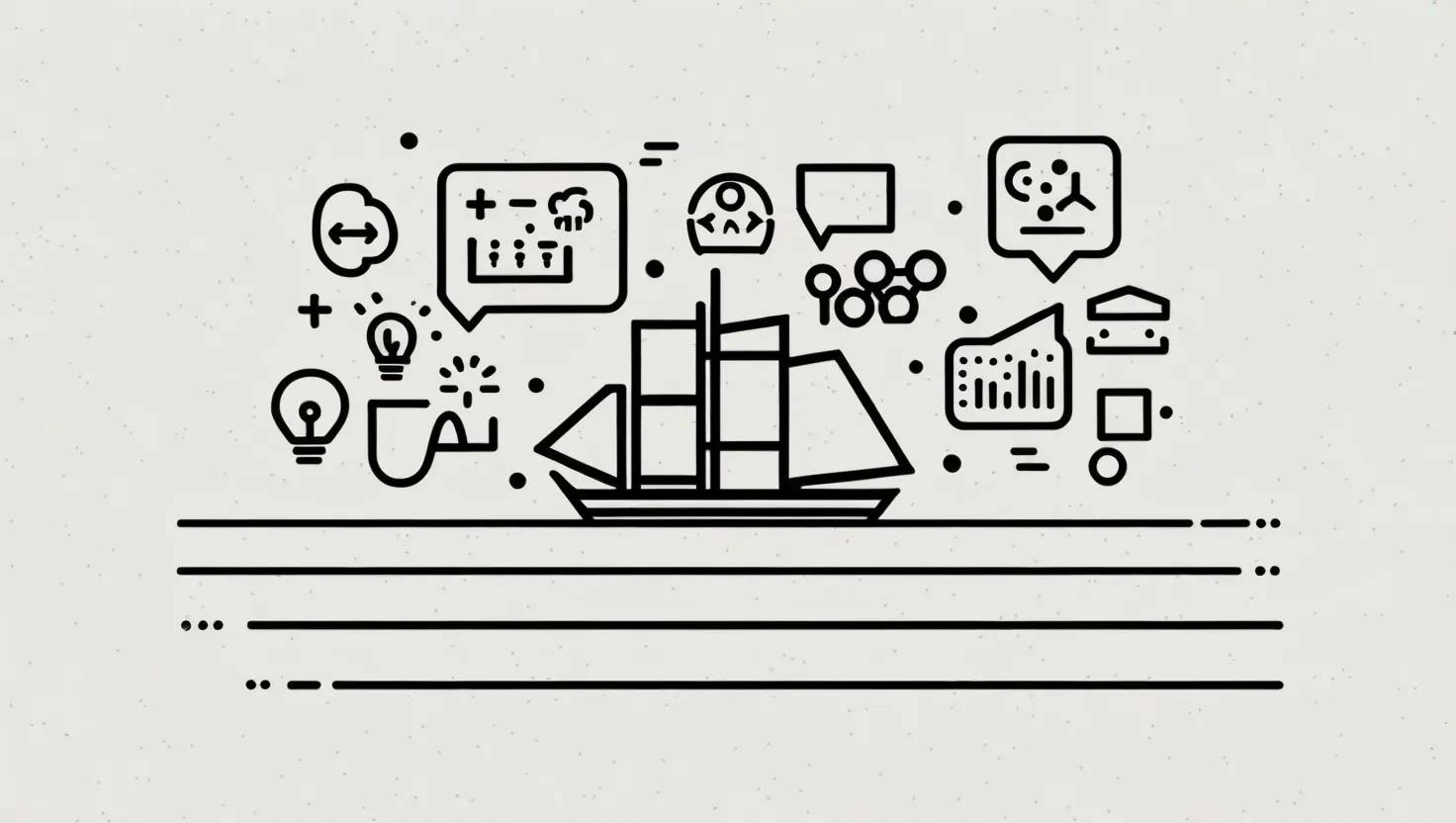Building Trust from Day One: The Key to Success in Finance
In the world of finance, trust isn't just important - it's everything. From the moment you meet a potential client, you're on the clock to make a lasting impression that could shape your entire professional relationship. It's wild to think about, but studies show that people start forming opinions about trustworthiness in as little as a tenth of a second. Talk about pressure!
So how do you nail that crucial first impression and keep building on it? Let's dive into some strategies that can help you become a trust-building superstar in the finance world.
Get Personal (But Not Too Personal)
One of the best ways to build trust quickly is to show that you're not just another suit spouting financial jargon. Take the time to really get to know your clients. What keeps them up at night? What are their big dreams and goals? By understanding the person behind the numbers, you can tailor your approach and show that you genuinely care about their success.
I once had a client who was super stressed about saving for her kids' college funds. By taking the time to listen to her concerns and sharing my own experiences as a parent, we were able to connect on a personal level. This made her feel more comfortable opening up about her financial situation, which allowed me to provide better advice.
Be a Crystal-Clear Communicator
Nothing erodes trust faster than confusion or mixed messages. From day one, be crystal clear about how you'll communicate, when clients can expect responses, and who they can reach out to if they need help. Set realistic expectations and then exceed them whenever possible.
For example, you might tell clients that you'll respond to emails within 24 hours. But if you can get back to them sooner, do it! They'll appreciate the quick turnaround and feel like a priority.
Listen Like Your Career Depends on It (Because It Does)
Active listening is a superpower in the finance world. When you really tune in to what your clients are saying (and not saying), you pick up on crucial details that can help you serve them better. Plus, people love feeling heard - it's human nature!
Try repeating back key points to show you're paying attention. Something like, "So if I understand correctly, you're worried about market volatility affecting your retirement savings. Is that right?" This simple technique can work wonders for building trust and rapport.
Show Your Human Side
Here's a secret: clients don't expect you to be perfect. In fact, showing a bit of vulnerability can actually make you more relatable and trustworthy. Share a story about a mistake you've made or a challenge you've overcome. It shows that you're human and that you've learned from your experiences.
I once told a client about how I made some questionable investment choices early in my career. By sharing what I learned from those mistakes, I was able to demonstrate my growth and expertise while also making a more personal connection.
Mirror, Mirror on the Wall
Have you ever noticed how people who get along well often have similar body language? That's not a coincidence - it's a subconscious way of building rapport. Try subtly mirroring your client's posture or speaking rhythm. It's a non-verbal way of saying "we're on the same wavelength."
Just be careful not to overdo it - you don't want to come across like you're mocking them!
Empathy: Your Secret Weapon
In finance, we deal with some pretty emotional stuff. Money can be a huge source of stress and anxiety for people. By showing genuine empathy and understanding, you can create a safe space for clients to open up about their financial concerns.
Remember, you don't always have to have all the answers. Sometimes, just acknowledging someone's feelings can go a long way. "I can see why that would be stressful. Let's work together to find a solution that helps you feel more secure."
Be a Problem-Solving Ninja
Don't wait for problems to come to you - anticipate them and tackle them head-on. If you know a client is going to be using a new financial software, offer to walk them through it before they even ask. By being proactive, you show that you're invested in their success and that you're always thinking one step ahead.
This approach can turn potential headaches into trust-building opportunities. Clients will appreciate your foresight and feel more confident in your abilities.
Leverage Your Reputation and Network
In finance, your reputation is gold. If you've built a solid track record, don't be afraid to let it shine. Share success stories (while respecting client confidentiality, of course) and showcase your expertise.
Referrals can also be a powerful trust-builder. If a client comes to you through a trusted friend or colleague, you're already starting on a strong foundation. Nurture these connections and always strive to live up to the trust placed in you.
Never Stop Improving
The finance world is always evolving, and so should your approach to building trust. Regularly ask for feedback from clients on their onboarding experience and overall satisfaction. Use this information to refine your processes and deliver an even better experience for future clients.
Remember, building trust is an ongoing process. It doesn't stop after the first meeting or even after years of working together. Keep nurturing those relationships, stay transparent, and always put your clients' interests first.
Real-World Trust-Building in Action
Let me paint you a picture of how all this comes together in the real world. Imagine you're meeting a new client, Sarah, who's just starting her own business. Instead of launching into a sales pitch, you start by asking about her entrepreneurial journey. You listen intently as she shares her excitement and concerns.
Drawing on your own experience with small business owners, you share a relatable anecdote about common financial pitfalls for startups. This shows Sarah that you understand her unique challenges. You then outline a clear communication plan, explaining how often you'll check in and what kind of support she can expect.
Throughout the onboarding process, you're proactive - anticipating questions about business taxes and offering resources before Sarah even asks. You introduce her to your team, explaining each person's role in supporting her financial success.
A few weeks in, you notice that Sarah hasn't set up her business accounting software yet. Instead of waiting for her to reach out, you offer a quick tutorial session. This proactive approach shows that you're truly invested in her success.
By combining personal connection, clear communication, proactive problem-solving, and genuine expertise, you've laid the groundwork for a trusting, long-term relationship. And that, my friends, is how you build trust from day one in the finance world.
In Conclusion
Building trust in finance isn't rocket science, but it does require intentionality and genuine care for your clients. By focusing on personalization, transparent communication, active listening, and proactive problem-solving, you can create strong foundations for lasting professional relationships.
Remember, trust is like a plant - it needs constant nurturing to grow and thrive. Keep investing in those relationships, stay true to your word, and always put your clients' best interests first. Do that, and you'll not only build trust from day one but maintain it for years to come.
So go forth, finance pros, and build those rock-solid relationships! Your clients (and your career) will thank you for it.






